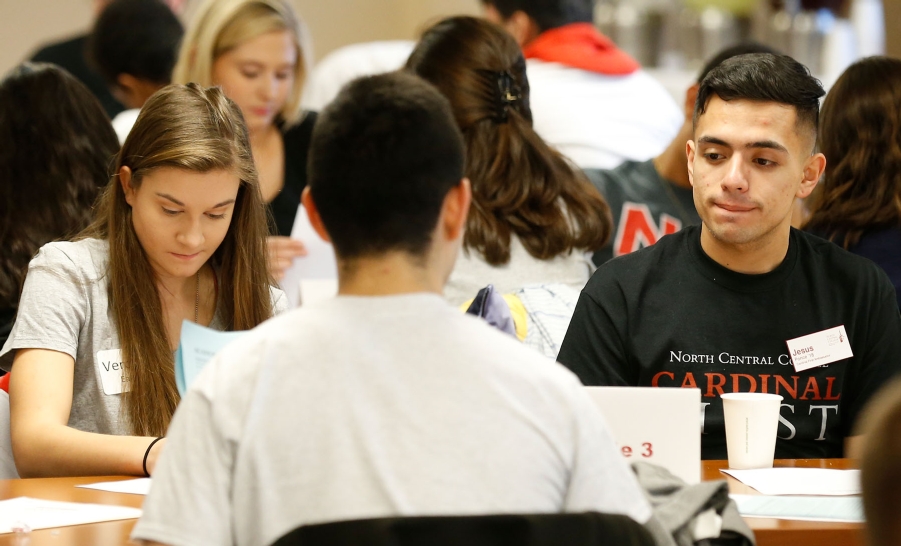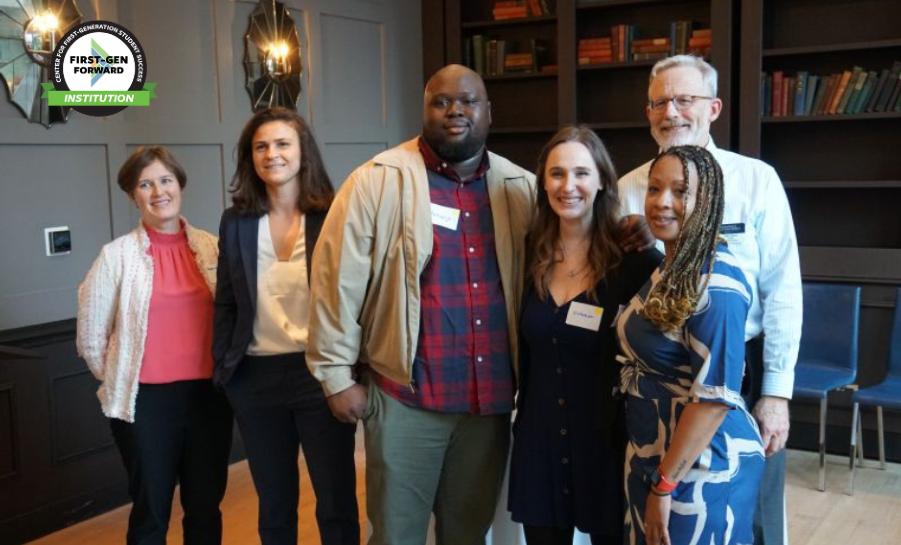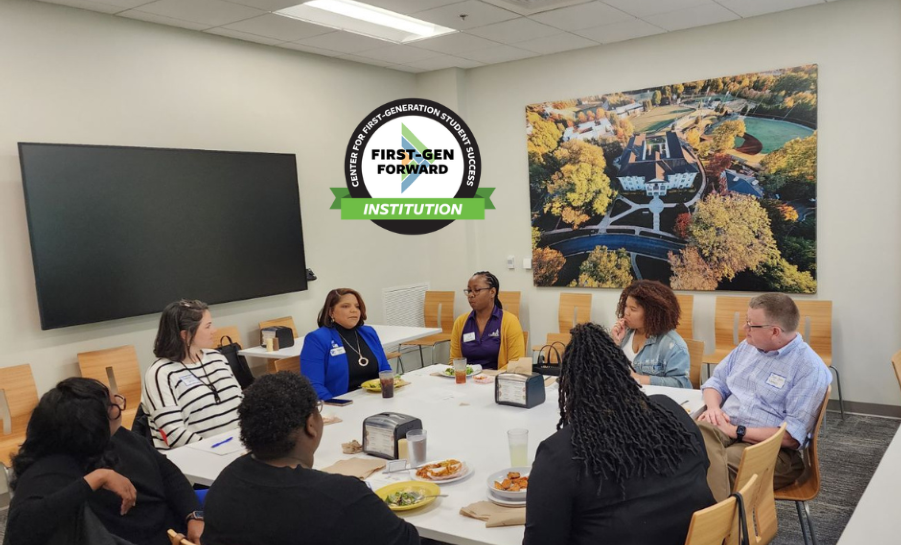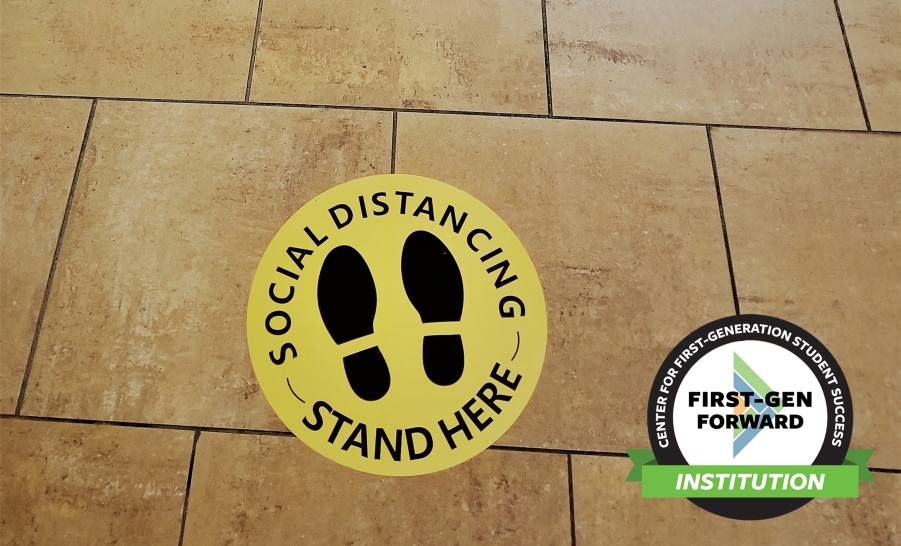Lessons Learned: Powerful Peer Mentor Programs
Jenee Palmer M.A., Saint Mary's College of California / FirstGen Forward / November 01, 2019
“The first day I met my Peer Mentor, I had some trouble finding where my class was. Instead of just telling me, she walked me all the way to the building. That’s just who she is.”
This quote, from a first-year student in the High Potential Program (HP) at Saint Mary’s College of California, embodies the power of peer connections and authentic relationships. HP, a TRIO Student Support Services program, is designed to foster the success and resilience of first-generation and/or low-income scholars and leaders as they transition from high school to college. The Peer Mentor Program provides essential support to students through that transition. The opportunity itself has grown into a coveted leadership position on campus.
HP Peer Mentors have learned how to assess and monitor a first-year student’s academic and social progress and model leadership skills. Elizabeth, Lead Peer Mentor and HP Student, shared: “My favorite part about being a Peer Mentor is making an impact on my mentees’ academic career and helping them advocate for themselves.” Peer Mentors offer support to their mentees, contribute to program operations, and develop as leaders themselves through the course of the year-long commitment.
Over the years, we have learned a lot about what it takes (and doesn’t take) to run a Peer Mentor Program for first-gen students. Whether you have a fully developed program, or you are starting something new, we hope that the lessons we’ve learned will help you to build upon what you have, or to plan for the peer mentor program you’ve always wanted to start!
Make It Count
The HP Peer Mentor Program at Saint Mary’s has been developed with the core curriculum of the College and key learning objectives in mind. Peer Mentors are required to take a leadership course (for academic credit) prior to applying and receive community engagement credit (a required course) for their participation. Peer Mentors participate in ongoing professional development facilitated by their supervisor (Sharzad Mozaffar - HP Coach and Peer Mentor Coordinator), campus partners, and themselves! The infrastructure of ongoing trainings engages campus allies, and ensures that Peer Mentors have the expertise and relationships to support their mentees. In addition, Peer Mentors, first-gen students themselves, are expected to lead a training for their colleagues and build their own professional skill set.
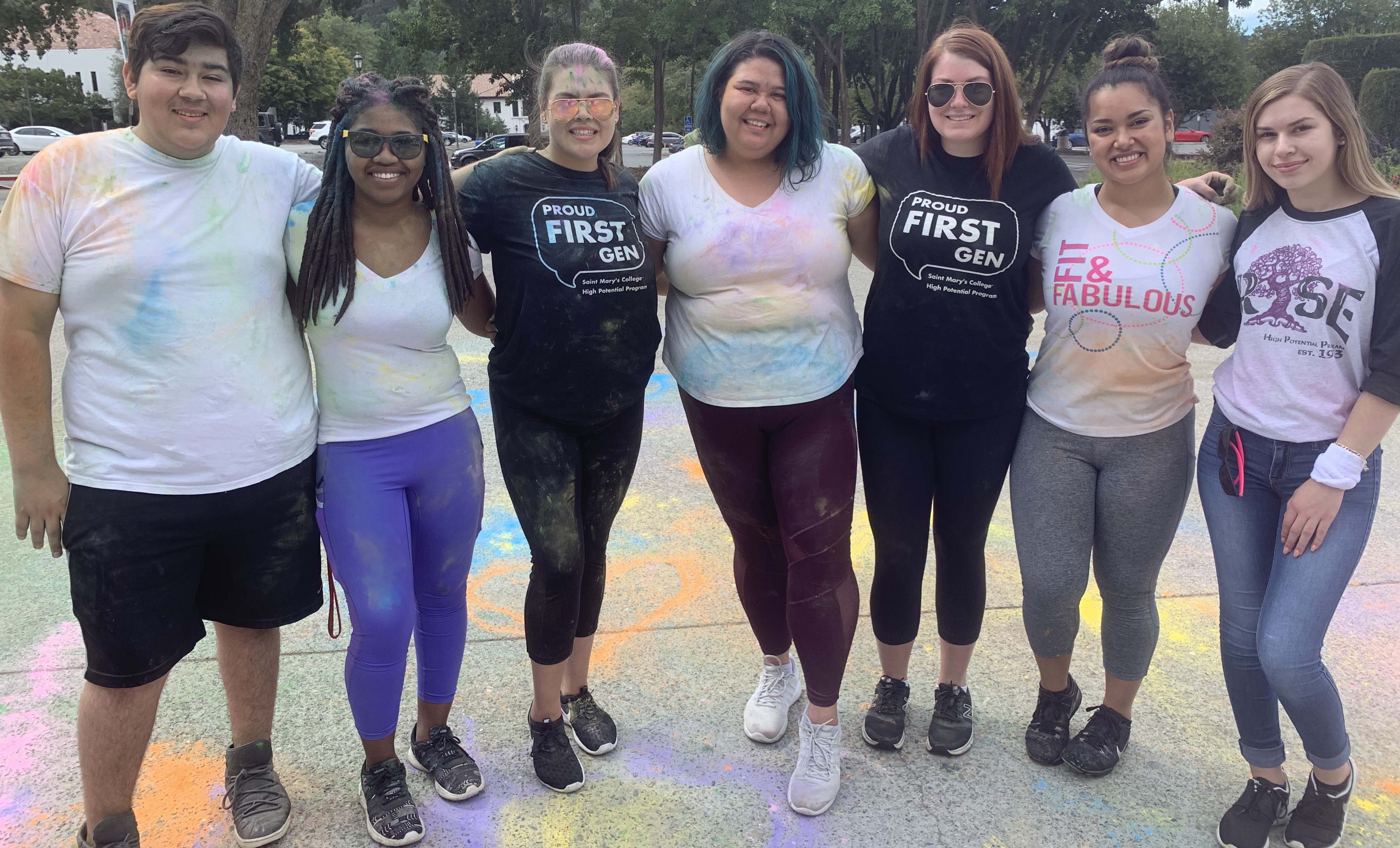
Listen, Listen, Listen, then Respond
Our program has gone through significant changes over the years. With each change, we learned the importance of utilizing our Peer Mentors to engage with the greater HP community to gain their insights, allowing us to make changes grounded in research and supported by student investment. Jazzy, Lead Peer Mentor and HP Student, emphasized the importance of this: “Peer Mentors are able to build connections with mentees on a deep level. The connections and insights allow first-gen programs to really learn the needs of students before they implement programming.” We leverage these connections to build the programs that our students need and want, rather than the programs we thought they needed. For us, this meant challenging ourselves to think outside of what we have “always done,” and resulted in new programs and priorities that have had higher impact.
Remembering Why We Are Here
At Saint Mary’s, we have a dedicated staff member who provides supervision and ongoing support to the Peer Mentors. Sharzad Mozaffar, HP Coach and Peer Mentor Coordinator, summed up the importance of remembering why we are dedicated to this work in the first place:
“We cannot forget that Peer Mentors are students too. They need ongoing support and training that goes above and beyond the general program expectations. Taking the time to build independent, caring, and genuine relationships makes a huge difference.”
Professional staff and Peer Mentors work together to support the success of students, and sometimes, it’s easy to forget that our Peer Mentors are students themselves! Our program has learned to slow down, ensure that our expectations are clear, and invest in meaningful relationships. For us, this means providing significant supervision, ongoing communication, and training. This also means offering (and if possible, financially supporting), opportunities for our Peer Mentors to build community with each other. These relationships ground us in our purpose, reminding us why we are here - in support of first-gen student success!
